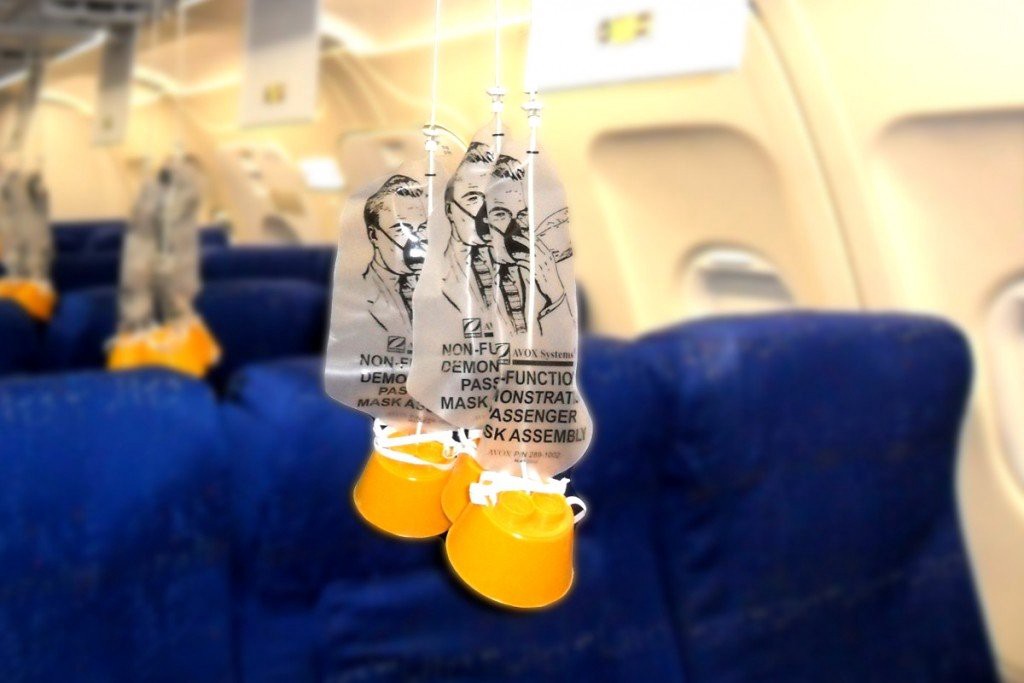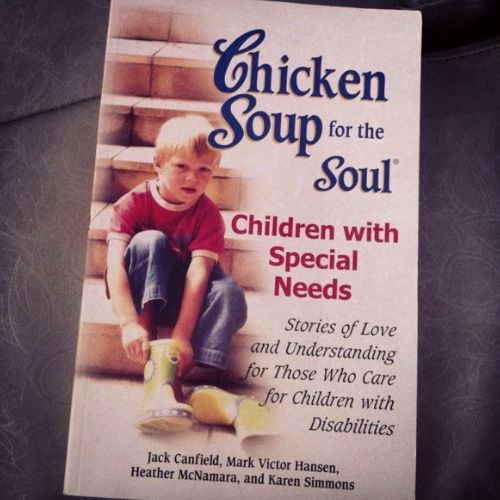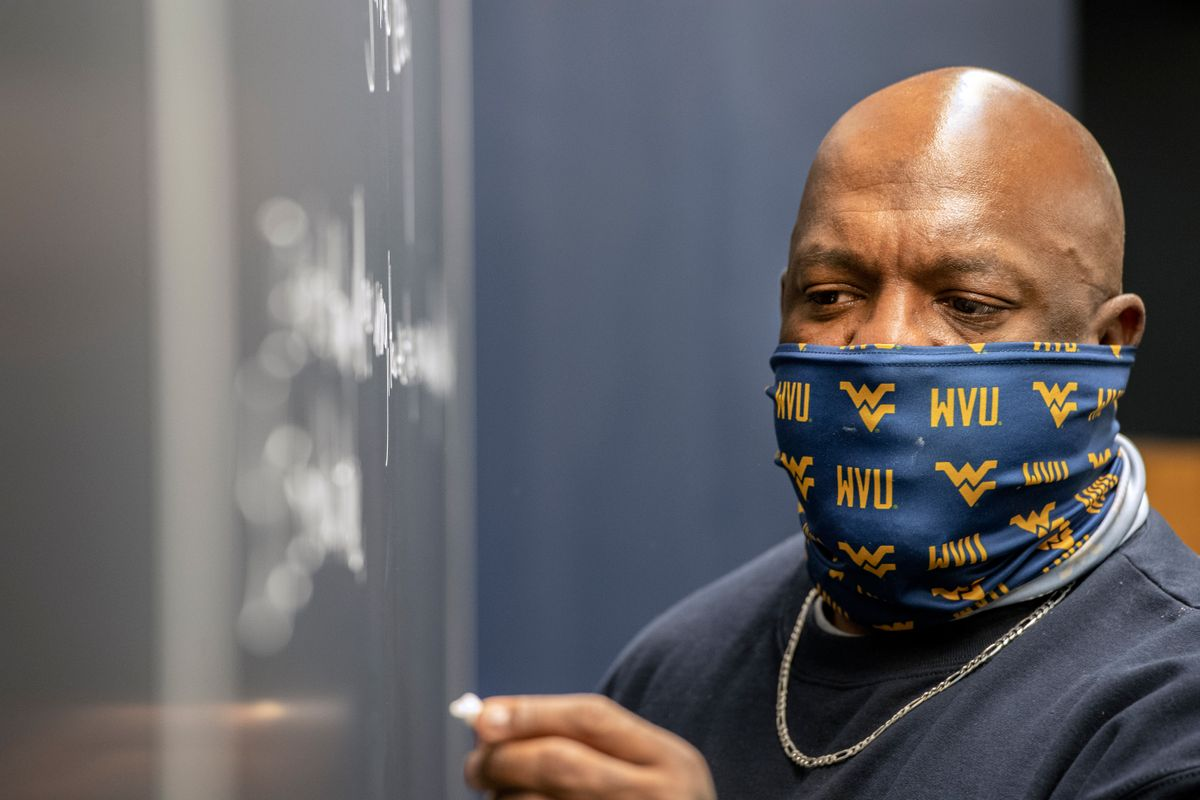January 2023 - Caregivers


If the aircraft cabin loses pressure, oxygen masks will fall from the ceiling above. You should place your mask on yourself first or else you are likely to pass out from lack of oxygen before you can help those that are relying on you. A caregiver’s oxygen is their energy, time and resources, and if neglected, one may not have the reserves to best care for those that need them the most. Opportunities for self-care for parents and caregivers of children with complex medical needs and disabilities come few and far between. When a child’s well being or life relies on the attentiveness of their caregiver, babysitter options become bleak or nonexistent. This type of lifestyle can put the caregiver at risk for health concerns of their own, stressed family dynamics and relationships, isolation, premature aging and other consequences of caregiver fatigue.
Featured Resources
All featured resources are available to borrow from the DRL
Browse more resources.Chicken Soup for the Soul Children with Special Needs

By: Jack Canfield, Mark Victor Hansen, Heather McNamara, and Karen Simmons
Raising a child with special needs is a lifelong commitment that is as unique as each person who embarks on it.
Written by a variety of authors who share in this distinctive relationship, these stories provide insight, comfort and connection with others who have walked this powerful and transformational journey. The authors of these candid stories relate their own experiences of adjusting, reaching out and flourishing and share their universal worries, tears and laughter that come with this extraordinary relationship. Most important, through these stories, you will be guided with the wisdom of fellow parents, caregivers and those with special needs to help you be the very best parent or caregiver you can be.
Married with Special-Needs Children, A Couples Guide to Keeping Connected
By: Marshak, Ph.D., Laura E., Prezant, M.Ed., CCC-SLP, Fran Pollock
Having a child with special needs can make it more difficult for a marriage to thrive and a child’s intensive needs can change the structure of a marriage. This guide speaks to parents about how to work on marital issues while juggling the demands of raising a child with a disability, medical complexities or mental illness. The authors draw on their combined professional experience in marital counseling and parent training as well as the experiences and advice of hundreds of parents of children with disabilities.
Featured Technologies
To browse more technologies, click here.Infrared Heat Massager
Compound eyes emit soothing infrared rays that penetrate deeply into skin surfaces. Dual motors are ideal for relieving muscle fatigue and tension when heat is not preferred. Have a massage at home when there is no time for a trip to the spa.
Yogibo Support Pillow

Lounge in comfort with the support pillow that can be used in a multitude of ways. Toss it in the floor to enjoy a good book or a television show or prop it on your bed for ultimate relaxation. Pair it with some deep breathing and mindful meditation for a few moments of solace.

Navigation Tips
Stress-Reduction Activities. Simply meeting your basic needs is not self-care. Remember that surviving is not thriving. Set self-care goals that are obtainable for your lifestyle but that go one step beyond the minimum. Self-care, however, does not mean elaborate, expensive or time-consuming although it could be. For parents and caregivers of children with special needs, simpler yet intentional actions can offer moments of solace in a day. The key here is to ensure that the self-care is realistic. Fill your cup in small sips each day, because there likely will not be time to spend gulping. Self-care might include:
- Do any physical activity that you loved as a kid – spin in a rolling chair or take a walk to the mailbox and back! Get some fresh air to stir that serotonin.
- Pick one space in your home to declutter/organize for 15 minutes – set a timer and see what having structure and control over that task does for your mental health!
- Stretch – this can be as informal as you see fit, whether you are just moving in ways that feel good and rejuvenate while you gather your thoughts, or following a five-minute yoga video. Try giving yourself a hug to stretch your back, shoulders, arms, and for all the feelings of comfort a hug signals to your brain.
- Write a letter of appreciation – even faking a smile sends messages to your brain that boosts serotonin! Focusing on the positive by acknowledging what or who you are grateful for in writing is a constructive way to reflect and feel more fulfilled. Change your mindset from “I have to…” to “I get to…”.
- Make a to-do list to get them out of your brain – if your long list of tasks is looming and stressing you out, putting them in writing and physically scratching the list off or planning for accomplishment can move the weight from your shoulders to your paper. Not to mention the gratifying feeling of checking each box!
Respite Care. Talk to your service coordinator about the availability of respite care or how to utilize a respite worker/family for even a few hours a week.
Connection. Find your people and connect to them as there is comfort in validation and shared experiences. They might need you as much as you need them. The CED has numerous options for support groups for caregivers. Additionally, the Center for Excellence in Disabilities (CED) has launched a podcast for parent and caregivers of children with disabilities. You are not alone in the journey and you can hear from and learn from others who are living similar experiences. Check out the podcast, Adjusting the Sails and watch our website and Facebook page for episodes to be released monthly.
Knowledge is Power. Educate yourself about your child’s diagnosis, upcoming transitions, new challenges, new skills, etc. The more prepared and in control you feel the less stressed you are. When you feel that you are an expert, connect with others as a mentor! Learn more about parent leadership opportunities at the CED.
Check-in with yourself. Where do you fall on the caregiving continuum? Try to take your hypothetical temperature regularly. Use tools like this Caregiver Quiz by AARP to gauge your need to seek help or support.
Get help anonymously, 24/7. If you are experiencing a mental health crisis, are concerned about your wellbeing, experiencing debilitating depression or anxiety or experiencing thoughts of self-harm or suicide, finding help has never been easier.
- Help304 provides social, emotional, and supportive counseling via call, text or chat – 1-(877)-435-7304
- Help4WV a mental health crisis line provides immediate help for anyone experiencing a mental health or addiction issue via chat, call or text – (844) 435-7498
- 988 Suicide and Crisis Lifeline – dial or text 988

General adaptive strategies and etiquette
Eric Murphy is the State Mental Health Specialist for the WVU CED. Eric’s career focus has been supporting healthy student development over the last ten years and by doing what he loves, helping others, he has learned more about himself and developing his sense of self-actualization, "I get to be me"!
During his tenure, Eric has worked to support students of all ages and their families in a variety of ways. He and a colleague developed a program for engaging fathers with their elementary school-age children. He has been awarded recognition for his contributions to children, students, and the community by receiving the Faculty Award for Excellence in Community Engagement as well as the Jasper N. Deahl award from the College of Education. Eric reports that his motivation to serve children in West Virginia stems from how he was raised, to "start with the children of the community to create a wave of change".
He works to honor his parents by being a catalyst for change for his clients. Eric feels that his greatest impact on society so far has been to destigmatize mental health services. His culturally relevant techniques and evidence-based approaches to mental health work has inspired people to seek help and change their lives. Eric prides himself in being a part of the process of change for his clients of all ages and says, “who wouldn’t want to do that?”
Thank you, Eric! What an asset you are to WVU and to the CED and the clients, students, children and families we serve.
